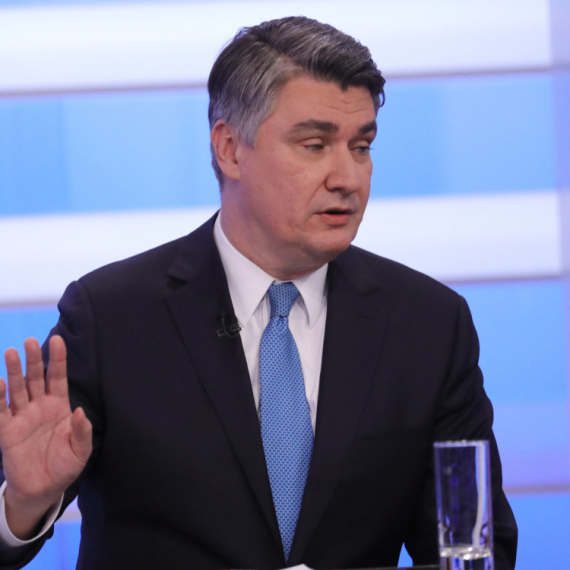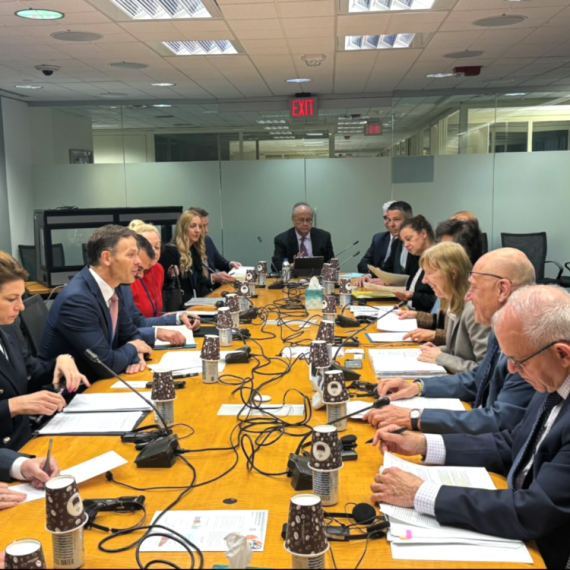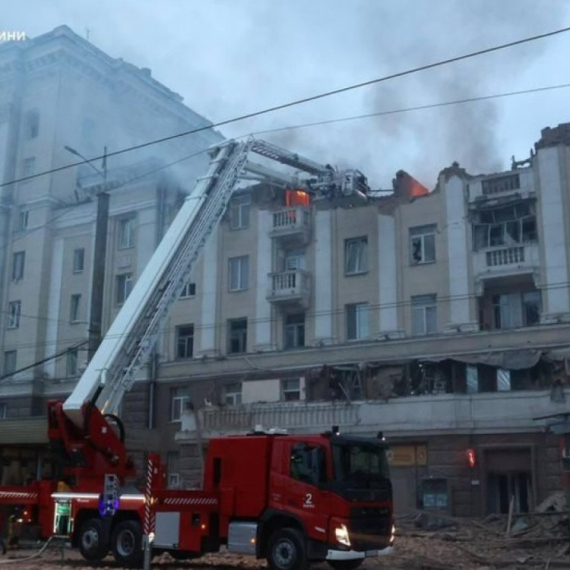Details of SNS-SPS-URS coalition agreement
Ahead of the signing of a coalition agreement that would enable the formation of a government in Serbia, B92 has seen the details of the document.
Tuesday, 10.07.2012.
17:05

BELGRADE Ahead of the signing of a coalition agreement that would enable the formation of a government in Serbia, B92 has seen the details of the document. The 13-page agreement specifies the political goals of the country's future ruling coalition, and obligates them to act together in order to implement state, economic, and social policies, and the rule of law. Details of SNS-SPS-URS coalition agreement They will also work to implement policies regarding the fight against corruption and crime, state administration reform, professional management of public enterprises, decentralization and regional development, freedom of the media, health-care, education, and science. On the first point, Serbia's new cabinet will work to speed up the EU integration process, along with "investing maximum effort in order to receive a date for the start of EU (accession talks)". At the same time, the document states that Serbia "will not recognize Kosovo as independent": "The (future) Serbian government wishes to see a normalization of lives of all citizens in the territory of Kosovo and Metohija. It is necessary to implement everything that had been agreed in the technical dialogue with Pristina and continue the dialogue on the political level, with participation of top state officials". The SNS-SPS-URS coalition manifesto further adds that the issue of Kosovo and Metohija would be solved "by peaceful means, accepting the results of the Belgrade-Pristina dialogue reached by the previous government". The document states that the new government would lead a balanced foreign policy and continue to improve cooperation with neighbors, also cooperating "with all the countries of the world, in the interest of Serbia". It mentions "reconciliation between the regional states within their existing borders", and stresses that Serbia will wish to have good relations with Montenegro, Macedonia, Croatia and Bosnia-Herzegovina - "with the mutual respect of sovereignty and territorial integrity". Serbia will, within the Agreement on Special Relations, also advocate full respect of the Dayton Peace Accords, and develop best cultural, economic, and every other kind of cooperation with the Serb Republic (RS). As for the country's economic policy, the document states that urgent measures to lower the budget deficit would be brought in September, and announces "radical measures aimed at reducing bureaucracy and eliminating unnecessary expenditure of the state". The new government will also continue negotiations with the IMF and the World Bank. Under its new cabinet, Serbia will implement a program of fiscal consolidation, adopt a new law on public procurement in October, and reform the tax system, at the same time "doubling the agriculture budget". While pensions and salaries will not be frozen, their increase in the first year of the government's mandate will be harmonized with the budget's "real possibilities". Anti-crisis measures will also include a program of subsidized liquidity loans. The parties that will form Serbia's new cabinet also pledged to stand for "efficient penalizing of all forms of monopolies and all forms of anti-competitive practices". B92
Details of SNS-SPS-URS coalition agreement
They will also work to implement policies regarding the fight against corruption and crime, state administration reform, professional management of public enterprises, decentralization and regional development, freedom of the media, health-care, education, and science.On the first point, Serbia's new cabinet will work to speed up the EU integration process, along with "investing maximum effort in order to receive a date for the start of EU (accession talks)".
At the same time, the document states that Serbia "will not recognize Kosovo as independent":
"The (future) Serbian government wishes to see a normalization of lives of all citizens in the territory of Kosovo and Metohija. It is necessary to implement everything that had been agreed in the technical dialogue with Priština and continue the dialogue on the political level, with participation of top state officials".
The SNS-SPS-URS coalition manifesto further adds that the issue of Kosovo and Metohija would be solved "by peaceful means, accepting the results of the Belgrade-Priština dialogue reached by the previous government".
The document states that the new government would lead a balanced foreign policy and continue to improve cooperation with neighbors, also cooperating "with all the countries of the world, in the interest of Serbia".
It mentions "reconciliation between the regional states within their existing borders", and stresses that Serbia will wish to have good relations with Montenegro, Macedonia, Croatia and Bosnia-Herzegovina - "with the mutual respect of sovereignty and territorial integrity".
Serbia will, within the Agreement on Special Relations, also advocate full respect of the Dayton Peace Accords, and develop best cultural, economic, and every other kind of cooperation with the Serb Republic (RS).
As for the country's economic policy, the document states that urgent measures to lower the budget deficit would be brought in September, and announces "radical measures aimed at reducing bureaucracy and eliminating unnecessary expenditure of the state".
The new government will also continue negotiations with the IMF and the World Bank.
Under its new cabinet, Serbia will implement a program of fiscal consolidation, adopt a new law on public procurement in October, and reform the tax system, at the same time "doubling the agriculture budget".
While pensions and salaries will not be frozen, their increase in the first year of the government's mandate will be harmonized with the budget's "real possibilities".
Anti-crisis measures will also include a program of subsidized liquidity loans.
The parties that will form Serbia's new cabinet also pledged to stand for "efficient penalizing of all forms of monopolies and all forms of anti-competitive practices".



























































Komentari 4
Pogledaj komentare